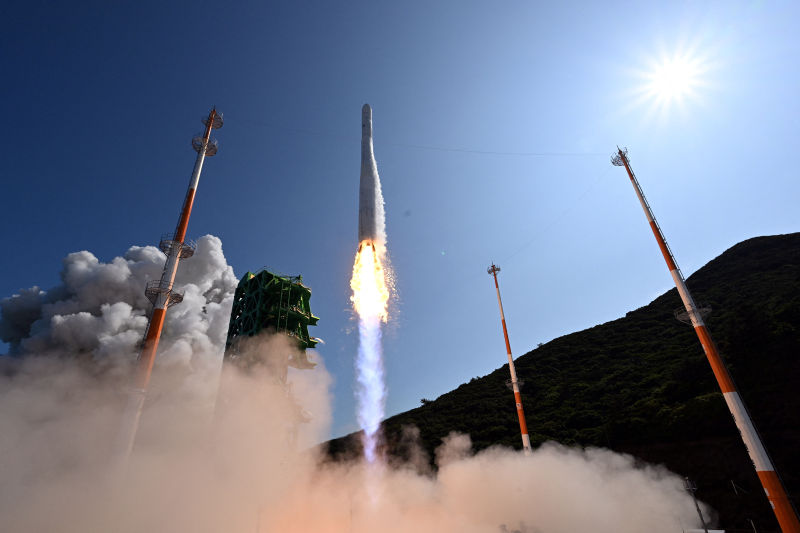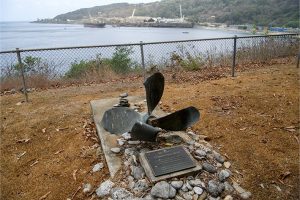South Korea flexed its aerospace technology muscles on Tuesday, putting several satellites into orbit, and joining China and Japan in a regional space race.
Its homegrown Nuri rocket achieved a major step in efforts to jumpstart the country’s space programme after a first test failed last year.
The rocket lifted off from Naro Space Center on the southern coast of South Korea and a 162.5-kg satellite designed to verify the rocket’s performance successfully made contact with a base station in Antarctica after entering orbit, officials said.
The rocket also successfully placed into orbit a 1.3-tonne dummy satellite and four small cube satellites developed by universities for research.
“The sky of the Korean universe is now wide open,” Science Minister Lee Jong-ho told a briefing. “Our science and technology has made great strides.”
6G Networks, Spy Satellites and Lunar Probes
The KSLV-II Nuri rocket, designed by the Korea Aerospace Research Institute (KARI) to put 1.5-tonne payloads into orbit 600-800km above the Earth, is a cornerstone of the country’s ambitious goals for 6G networks, spy satellites and even lunar probes.
It uses only South Korean rocket technologies, and is the country’s first domestically built space launch vehicle. South Korea’s last booster, launched in 2013 after multiple delays and several failed tests, was jointly developed with Russia.
President Yoon Suk-yeol watched the launch from his office and thanked everyone involved as he was briefed by Lee and others about the success.
He has vowed to keep an election pledge to create a new agency to take charge of space affairs.
“Now the road to space from our land has been opened,” Yoon said. “It was the product of 30 years of daunting challenges. From now on, the dreams and hopes of our people and our youth will extend into space.”
In Nuri’s first test in October, the rocket completed its flight sequences but failed to put the test payload into orbit after its third-stage engine burned out earlier than planned.
South Korea is also working with the US on a lunar orbiter, and hopes to land a probe on the moon by 2030.
- Reuters, with additional editing by George Russell
READ MORE:
Pentagon Eyes SpaceX ‘Quick Reaction Force’ – Intercept
SpaceX Seen Firing Workers For Letter Criticising Musk
China’s Space Programme Finds Evidence of Water on Moon
























